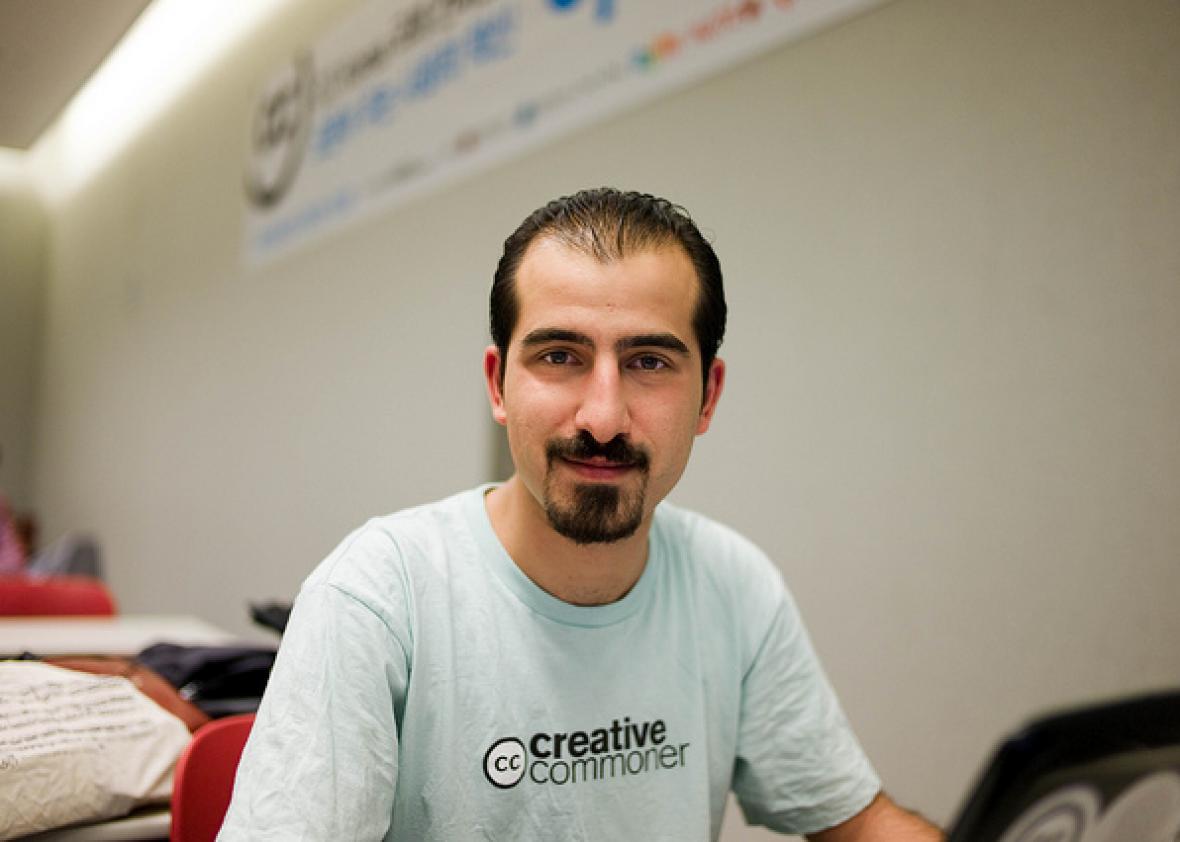Netizen Report: Tech Community Mourns Open-Source Activist Executed by Syrian Regime

Joi Ito/Flickr
The Netizen Report offers an international snapshot of challenges, victories, and emerging trends in internet rights around the world. It originally appears each week on Global Voices Advocacy. Ellery Roberts Biddle, Mohamed ElGohary, Leila Nachawati, Inji Pennu, and Sarah Myers West contributed to this report.
This week, open technology and knowledge advocates around the world mourned the execution of Bassel Khartabil, an open-web advocate and close friend of many in the Global Voices community. Bassel was reportedly sentenced to death in November 2015, at which point his whereabouts and condition became unknown. His wife, Noura Ghazi, learned this week that he was executed in 2015.
Khartabil spearheaded the open-source technology movement in Syria, as an avid contributor to global projects like Creative Commons and Wikipedia and as co-founder of the country’s first open-technology lab in Damascus. To honor his country’s historic past, he worked with technologists and architects to virtually reconstruct the ancient city of Palmyra, in hopes of reviving its historical notoriety.Like so many other peaceful technology developers and activists in Syria and beyond, Khartabil was accused of “harming state security.”
In The Cost of Freedom: A Collective Inquiry, a book of essays and poems written by artists, thinkers and technologists who knew Bassel, his wife, Noura Ghazi, reflected on his spirit:
I’ve lived all my life dreaming of Freedom, and Bassel taught me to embrace it. ... He has always shared his knowledge with everyone who asked, and has also taught many prisoners to read, write, and speak English. Bassel opened the door to technology for me, he taught me to use both computers and smartphones. He taught me the Internet. He also taught other prisoners to use computers theoretically, without having one in their hands.
Vietnamese blogger sentenced to nine years in prison
In a one-day trial on July 25, the People’s Court in Vietnam’s Hà Nam province sentenced Trần Thị Nga to nine years in prison and five years of house arrest for “conducting propaganda against the State.” The 40-year-old Nga, also known by her pen name Thúy Nga, is a prominent advocate for migrants and land rights. She has also been documenting and campaigning against police brutality on her Facebook page and her YouTube channel. Nga has been frequently intimidated and physically attacked by police for her work.
Facebookers in Kashmir and Brunei pay high prices for “anti-national” speech
A man in Kashmir was detained by police after allegedly writing “anti-national” posts on Facebook. Local residents complained to police about the posts, which appeared after India lost to Pakistan in an international cricket competition. An officer told the Kashmir Observer, “We are running a check on whether this person has links with any terror outfit or not. We are also scanning his activities on social networking sites.”
A government employee in Brunei was charged with violating the Sedition Act after he complained on Facebook about new halal certification regulations released by the Ministry of Religious Affairs. Global Voices’ Mong Palatino explained that given Brunei’s stringent media regulations, issues related to civil liberties are not often discussed online. “That's why the [online] conversation about Shahiran's case provides a rare glimpse of how some netizens think about the situation in the country today,” he wrote.
Fake news flourishes on Free Basics
New research by Global Voices show that Free Basics, the “free” mobile version of Facebook, makes it difficult for users to assess the reliability of news articles. The app only allows users to read headlines and the captions of photos, stripping away valuable context that helps users determine the validity of the information in a news report. Given the proliferation of copycat websites spreading fake news, this makes it easier for Free Basics users to spread false information without realizing it.
Forget censorship—Tajikistan will monitor the web instead
Tajikistan’s parliament passed a set of amendments to the country’s criminal law that grant security services the right to monitor and control citizens’ online activities. This includes keeping detailed records of SMS and mobile messages, social media comments, and anyone who visits websites deemed “undesirable,” though it is unclear what sites would qualify. The law also criminalizes making comments that could damage someone’s personal honor or undermine national security, with a minimum punishment of two years in jail. The legislation marks a shift in approach for the Tajik government, which historically banned controversial websites and services instead of monitoring citizens’ activities across the web.
Palestinian Authority rushes through cybercrime bill
On June 24, Palestine passed a new law regulating online transactions, media websites, and social networking sites. The law outlines a number of “cybercrimes” that can be punished by up to 15 years in prison or hard labor for life. While it lists a few cybercrimes that should be fought at all costs, such as sextortion, fiscal fraud, and identity theft, it also gives the public prosecutor's office unlimited powers to surveil Palestinian citizens, intercept their online communications, and arrest them for airing their opinions and political views online. The law was approved by President Mahmoud Abbas just two weeks later, with no opportunity for input from civil society.
Future Tense is a partnership of Slate, New America, and Arizona State University.

